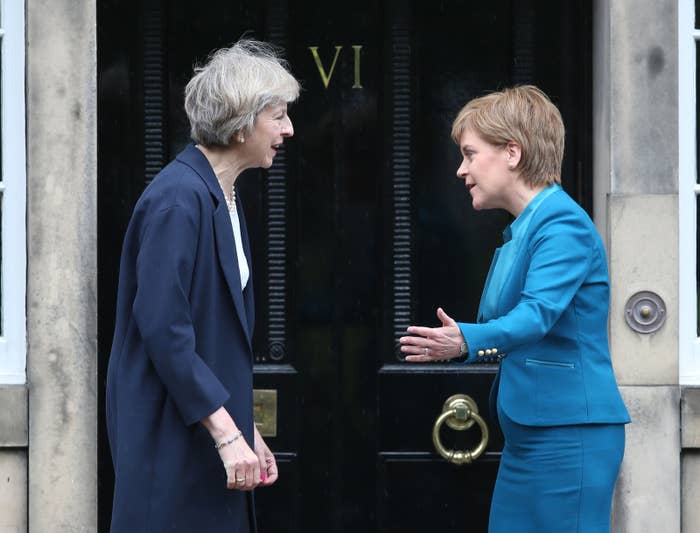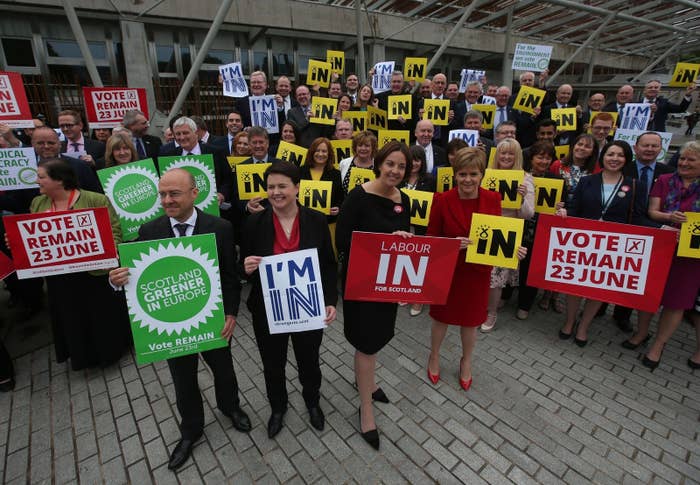
Theresa May is free to ignore the will of the Scottish parliament if it refuses to give its consent to the triggering of Article 50, experts in constitutional law have told BuzzFeed News.
On Thursday, the high court of England and Wales ruled that the prime minister must win the backing of the Westminster parliament before her government can begin the two-year process of leaving the European Union.
The UK government act to trigger Article 50 would also affect Scottish law, in which case the Scottish parliament would usually have to give its consent to such an act in a vote known as a legislative consent motion.
First minister Nicola Sturgeon previously argued this would allow Holyrood to effectively block Brexit, but constitutional lawyers have said the prime minister is under no legal obligation to respect the wishes of the Scottish parliament if it refuses to give its consent.
Professor Alan Page, a professor in public law at Dundee University, said Holyrood withholding its consent would have no legal effect, leaving open the prospect of a constitutional crisis between the two parliaments and the fuelling of calls for a second independence referendum.
"If consent is required, it’s reasonable to suppose the Scottish parliament would withhold its consent," Page told BuzzFeed News. "All the parties in the Scottish parliament are opposed to Brexit, except the Conservatives, so there would most likely be a Holyrood majority.
"But, at the end of the day, that wouldn’t change anything. The Scottish parliament could underline its political opposition to the proposals, but that would not affect the legal position assuming the act successfully goes through Westminster."

Holyrood has only refused consent to a Westminster act once, in a protest against changes to the benefit system in 2011. The procedure is intended to make sure that Westminster doesn't override the rule of Holyrood, but in fact there's nothing legally to stop the UK parliament from making laws on devolved matters.
Professor James Chalmers from the University of Glasgow told BuzzFeed News the UK government could go ahead with triggering Article 50 without asking the Scottish parliament for consent, as a referendum result is outside the normal circumstances covered by consent motions.
However, if it does come to a Holyrood consent vote, Chalmers said: "It's just a convention, [and] not actually enforceable in the courts. It wouldn't get you as far as a blocking power; even if Westminster should ask for consent it always has the power to go ahead without it."
In its efforts to prevent a hard Brexit from happening, the Scottish government is likely to add its voice to the argument against the UK government when it appeals Thursday's ruling in the supreme court in the months to come.
Sturgeon hinted on Thursday that her MPs in Westminster would vote to block Article 50, saying: “SNP MPs in the House of Commons will certainly not vote for anything that undermines the will or the interests of the Scottish people."
The party's Westminster leader, Angus Robertson, has told BuzzFeed News he's working with MPs from other parties to block Brexit in parliament.
